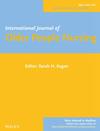Arthritis, one of the most common chronic diseases among older people, greatly impairs quality of life through a variety of physical and psychological challenges. This study used network analysis to gain a deeper understanding of the relationships between the indicators of quality of life in older adults with arthritis depending on duration of disease.
This cross-sectional study used data from 874 older adults with osteoarthritis and/or rheumatoid arthritis who answered the eighth (2019–2021) Korea National Health and Nutrition Examination Survey. We used network analyses of these data to investigate eight indicators of quality of life (pain, climbing stairs, vitality, working, depression, sleep, happiness and memory loss). Participants were divided into two groups depending on the duration of their arthritis (group A: < 10 years, group B: ≥ 10 years).
For group A, depression, working and climbing stairs were the most central indicators affecting quality of life. For group B, the most central quality of life indicators were depression, working, happiness, pain and sleep. In group A, the strongest associations were between depression and happiness, pain and climbing stairs and working and climbing stairs. The same strong associations were observed in group B, along with additional strong associations between depression and memory loss, sleep and happiness, pain and working and happiness and vitality. The bootstrap analyses showed that the networks were very stable and the edge weights accurately estimated.
Our findings suggest that healthcare professionals should routinely screen for depressive symptoms and activities of daily living, especially for older people with 10 or more years of arthritis. Both psychological and physical indicators should be prioritised as key factors in self-management interventions that aim to improve quality of life for older adults with arthritis. Sejong-si, South Korea: Implications for Practice. This study highlights the importance of multidimensionalcare plans to improve the quality of life for older adults with arthritis. Healthcareprofessionals should adopt care strategies that simultaneously address the key psychologicaland physical indicators to effectively enhance overall quality of life.
This study highlights the importance of multidimensional care plans to improve the quality of life for older adults with arthritis. Healthcare professionals should adopt care strategies that simultaneously address the key psychological and physical indicators to effectively enhance overall quality of life.


